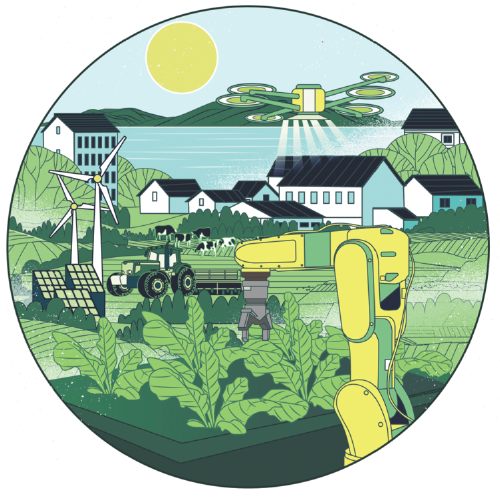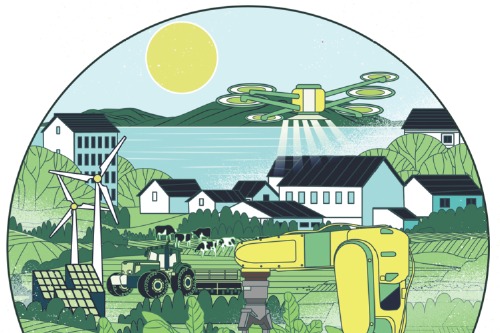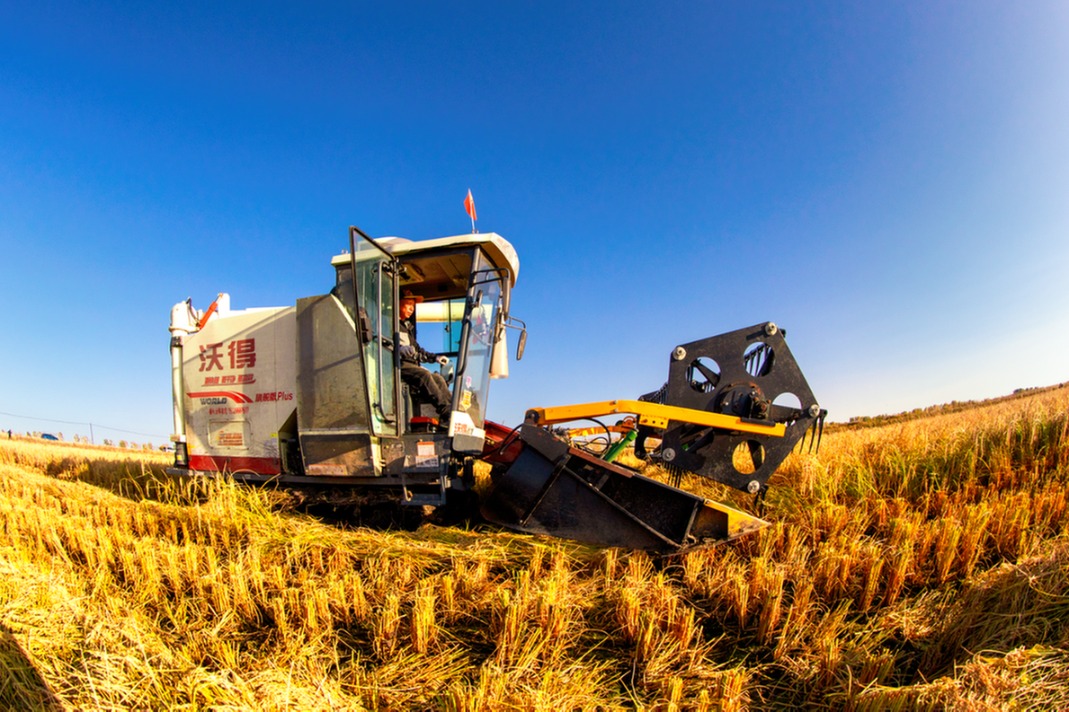Climate-smart agriculture to address climate change


Climate change is one of the most serious common challenges the world is facing today, and one of the worst impacts of climate change has been on the agriculture sector, affecting development patterns and threatening global food security.
Climate change-induced natural disasters such as floods, droughts, heat waves, rising temperatures in summer and increasingly cold winters have been more frequently hitting China. Crops in some regions have suffered heavy damage, significantly affecting the stability of agricultural production. Therefore, the country has to take more measures to mitigate and adapt to climate change, so as to better safeguard agriculture.
In fact, the central government attaches great importance to adaptation to climate change, and has implemented a series of policies to enhance the resilience of agriculture to climate change. By taking such measures, China is also contributing to the global fight against climate change and helping improve global climate governance.
In terms of policy formulation, the government has used strategic planning, policies and regulations, such as the National Climate Change Adaptation Strategy 2035, Implementation Plan for Agricultural and Rural Emission Reduction and Carbon Sequestration and the 14th Five-Year National Agricultural Green Development Plan, to expedite the implementation of the action plans to make the agricultural sector more resilient to climate change, and minimize the impacts of climate change on agriculture.
The government has also drafted the China Climate Change Adaptation Progress Report (2023) and China's Policies and Actions for Addressing Climate Change (2024) to systematically review the progress and effectiveness of China's climate adaptation work, and promote policy formulation and actions at all levels.
When it comes to providing scientific and technological support, China has been promoting research and development of key technologies to make the agriculture sector more resilient to climate change. China has also expedited the studies of germplasm resources adapted to climate change, because plant genetic resources underpin the security of agriculture. And while breeding high-yield, stress-resistant and high-quality varieties of grains, it has been promoting the integration of pest control and crop cultivation adapted to climate change, as well as developing dry farming and water conservation technologies, so as to comprehensively enhance the agricultural food system's resilience to climate change.
As for agricultural disaster mitigation and response, the government has taken prevention, mitigation and relief measures, while bolstering the monitoring, early warning and unified prevention and control systems against major pests and diseases in key areas.
The impact of natural disasters can be reduced by establishing a preliminary natural disaster monitoring and early warning system, issuing disaster prevention and mitigation plans in advance, improving the agricultural water conservancy and disaster prevention and mitigation infrastructure, and increasing the food storage capacity in disaster-prone areas.
In terms of international cooperation, the Ministry of Agriculture and Rural Affairs has jointly implemented Global Environment Facility (GEF) projects with the United Nations Food and Agriculture Organization, and the World Bank. China has also designed the Ecological and Low-Carbon Food Systems in China project under the GEF-8 framework.
By promoting climate-smart agriculture, better conserving agricultural biodiversity, remediating soil on cultivated land, facilitating the green transformation of food production and developing a diversified food supply system, China has optimized the food production system in the project areas. These projects have effectively enhanced the climate resilience of agriculture and created models for international agricultural response to climate change.
The ongoing 29th Conference of the Parties to the UN Framework Convention on Climate Change (COP29), which commenced on Monday and will conclude on Nov 22 in Baku, Azerbaijan, is expected to focus on the "Sharm el-Sheikh joint work on implementation of climate change on agriculture and food security" and put pressure on the UN member states to implement the consensus reached at Sharm El Sheikh.
Developed countries should fulfill their due responsibilities and delivery on climate finance commitments, while providing technical and capacity-building support to developing countries, in order to help them take policy measures to make the agricultural sector more resilient to climate change and thus ensure global food security.
The author is a senior agronomist with the Rural Energy and Environment Agency, Ministry of Agriculture and Rural Affairs. The views don't necessarily represent those of China Daily.
If you have a specific expertise, or would like to share your thought about our stories, then send us your writings at opinion@chinadaily.com.cn, and comment@chinadaily.com.cn.


































